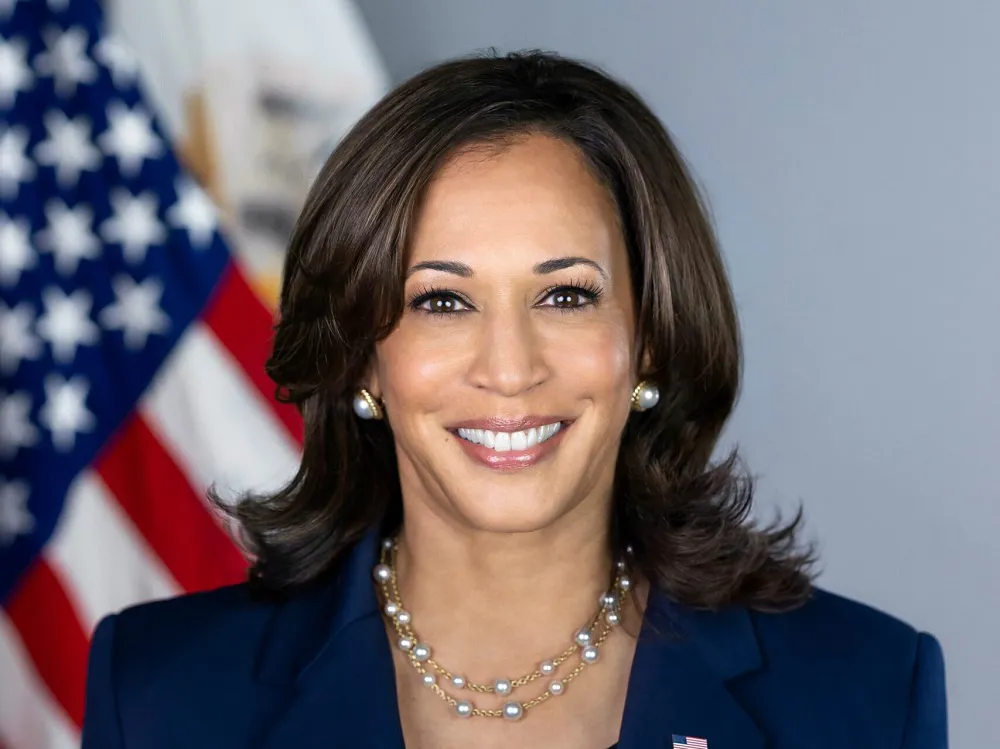Four possible outcomes from Harris visit to Vietnam
Kamala Harris's trip to Vietnam is expected to support Vietnam in building up its maritime security capacity.
The Hanoi Times is honored to introduce reflections on the forthcoming visit to Vietnam by US Vice President Kamala Harris by Carl Thayer, emeritus professor of the University of New South Wales (UNSW), Canberra.
| US Vice President Kamala Harris. Photo: White House |
I expect four major outcomes from Vice President Harris’ visit to Hanoi this week.
First, Vice President Harris will restate the Biden Administration’s engagement with Southeast Asia and support for ASEAN centrality, a rules-based regional order grounded in international law and freedom of the seas for commerce. Vietnam will welcome this as a constructive contribution to peace, stability, and security.
Second, Vice President Harris and her hosts likely will announce a range of initiatives focusing on cooperation to strengthen their comprehensive partnership, foremost will be combatting and recovering from the Covid-19 pandemic. Other areas of cooperation likely will include climate change mitigation, cyber security, trade and investment (digital trade and supply chain security), education, and people-to-people exchanges.
Third, I expect Vice President Harris to reject China’s illegal claims in the South China Sea [called East Sea by Vietnam] and offer Vietnam support to continue building up its maritime security capacity.
Fourth, I expect both sides to commit to strengthening their comprehensive partnership to raise bilateral relations to a strategic partnership in the future.
Additionally, Vice President Harris’ agenda on bilateral issues includes priority on trade cooperation and investment. Private industry in America has already lobbied Harris to push for Covid-19 vaccines for workers in Vietnam’s apparel, footwear, and travel goods industry. This is because Vietnam is the largest exporter of these items to the US.
There is some speculation that Vice President Harris and Vietnam’s leaders will explore opportunities in developing Vietnam’s electronics industry to a higher standard to establish a secure supply chain to the American market for Vietnamese manufacturers.
Harris will also raise the stability of supply chains linking Vietnam to the US. One important area of discussion will be how the US can assist Vietnam in upgrading its capacity to manufacture semiconductor chips for sale in the US where there is a current shortage.
Regarding further US assistance to and cooperation with Vietnam to address the Covid-19 pandemic, it might include more vaccines, medical equipment, and copyright transfer of intellectual property so Vietnam can produce vaccines domestically.
During the Hanoi visit, Harris will open a new US Center for Disease Control and Prevention (CDC) office in South East Asia. This will be a milestone development because it represents a long-term commitment by the United States not only to Vietnam but the region as well to deal with Covid-19 and other infectious diseases.
The CDC will enable regional collaboration among public health experts to gather data on vaccine usage and efficacy and to make policy recommendations to combat and recover from Covid-19.
Unprecedented visit
Kamala Harris would be the first American sitting vice president to visit Vietnam. It signifies the US-Vietnam relationship’s development.
The trip to Vietnam signals that the Biden Administration gives priority to its relations with Vietnam within the context of its Indo-China strategy.
The visit is unprecedented because of her senior role in the Biden Administration. It will confer recognition of Vietnam as a responsible member of the international community.
The visit also signals that the US is committed to strengthening and developing its comprehensive partnership.
Harris’ visit is unprecedented because Vice President Harris works so closely with President Biden, regional leaders will know that her words carry weight. In brief, when Biden or Harris proclaim “America is back” they mean to match words with deeds.
Vietnam’s role in US regional policy
Vietnam is important to the US because it has consistently resisted Chinese intimidation in the South China Sea and built up a credible military deterrent to China.
Vietnam also plays a constructive role in ASEAN and is well-respected by the international community as evidenced by its election twice as a non-permanent member of the UN Security Council (2008-09 and 2020-21). Hanoi also served as the venue for President Trump’s second summit with North Korea’s leader Kim Jong-un.
Since the Obama Administration, every US National Security Strategy has identified Vietnam as a key potential security partner of the US. This was true for the Trump Administration.
In March, the Biden Administration released its Interim National Security Strategic Guidance. This document listed Singapore and Vietnam as the two priority security partners in Southeast Asia.
This is because both Vietnam and Singapore are constructive and positive contributors to regional security through their support and leadership in ASEAN and other ASEAN-related multilateral institutions such as the East Asia Summit, ADMM-Plus, ASEAN Regional Forum, etc.
The Biden Administration’s initial plans to engage Southeast Asia, including Vietnam, came a cropper for reasons beyond its control. Under the Biden Administration, developing a partnership with Vietnam is a key priority.
The US will give priority to assist Vietnam in several areas to strengthen its human resource development and capacity building, especially in maritime law enforcement and security.
Vice President Harris’ visit will come within a month of Defense Secretary Austin's trip to Vietnam, it indicates how Vietnam is so important to Washington.
The interval between the visits by Secretary Austin and Vice President Harris to Singapore and Vietnam was not due to some urgent reason but to a long-standing US determination that both countries played a constructive role in regional security affairs in line with US interests.












